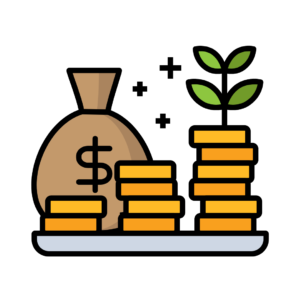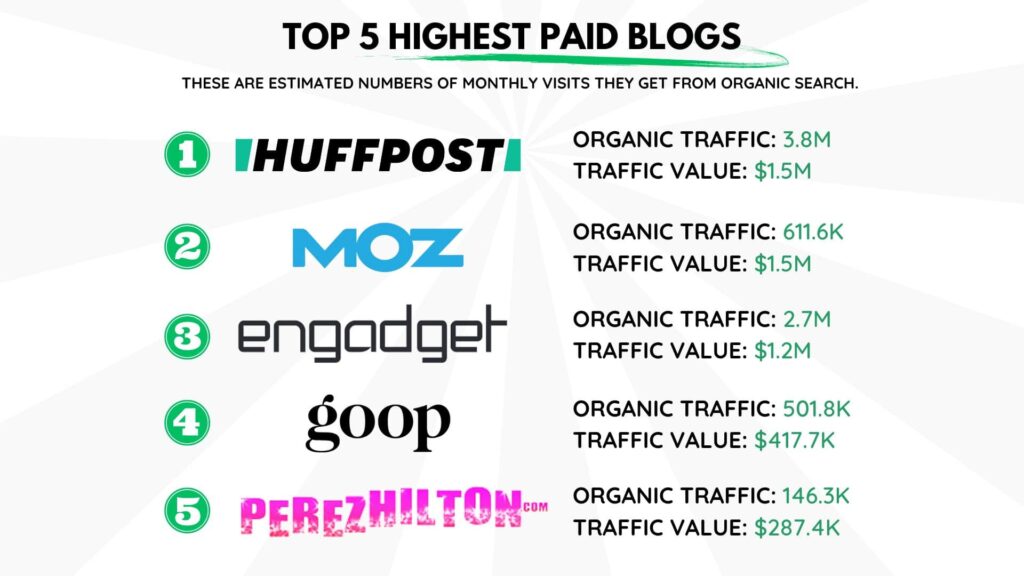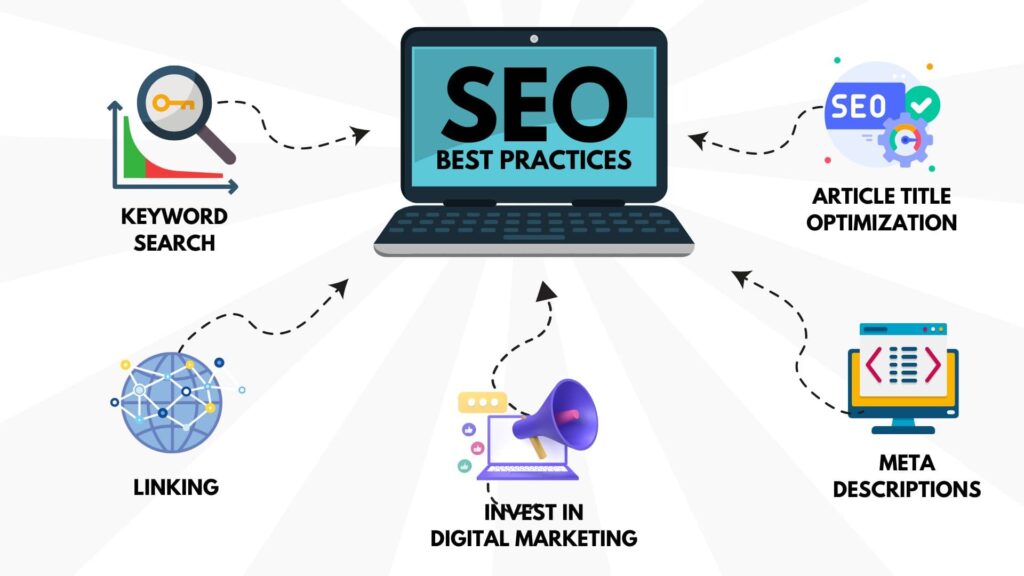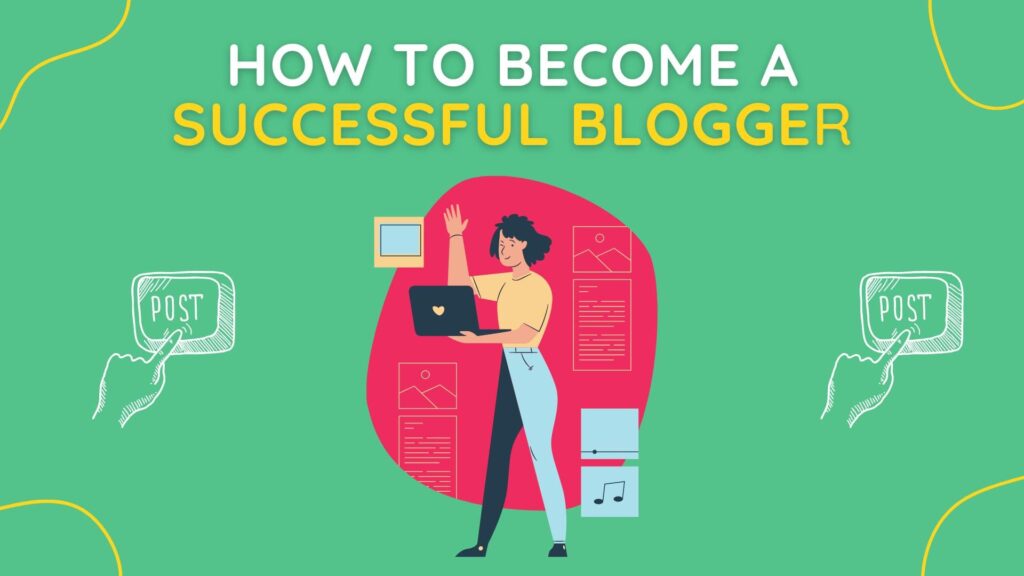
Sammie Ellard-King
I’m Sammie, a money expert and business owner passionate about helping you take control of your wallet. My mission with Up the Gains is to create a safe space to help improve your finances, cut your costs and make you feel good while doing it.

Quickfire Roundup:
Alright, future blog maestro, buckle up! Blogging success boils down to a couple of things.
Find a niche that gets you buzzing, whether it’s extreme ironing or salsa-dancing sloths, and voila – you’ve got your unique angle. You’ll also need to write about it for at least 24 months so you have to love it!
Consistency is your trusty sidekick; it keeps your readers coming back for more. But don’t hide your light under a bushel, use social media to shout about your blog.
When it comes to making a buck, look to affiliate marketing, sponsored posts, or ads.
But remember, blogging isn’t an instant cash cow, it’s a marathon not a sprint. It’s about offering value, knowing your audience, and refining your craft – all with a cheeky wink and a grin!
Blogging has become a popular way for individuals and businesses to share their ideas and expertise with a global audience.
Making money online is something we’ve all thought about doing but for most of us it’s that old age saying of where an earth do you start.
In this article, I’ll explore some essential steps and strategies on how to become a successful blogger – whether you are a beginner or have already been in the blogging game for a while there will be lots of actionable tips.
Table of Contents
How to Become a Successful Blogger: The Skills Required
If your dream is to establish yourself as a blogger in the coming year, you need to invest in that vision 100%.
Most bloggers if they go all in can make their site profitable in 12-18 months but it requires a lot of skills to get there.

I can’t think of a better way to invest in your new blog than to upskill as this is where the money is. I started Up the Gains as a blog and in 18 months I’m now earning a lot more than my day job ever paid so the proof is in the pudding!
A good starting point would be getting as much information as you can on the following:
-
How to research blog articles to help you when creating quality content
-
Best search engine optimization (SEO) practices and procedures
-
Creating engaging social media posts
-
How to monetise blogs
-
Growing an email list
-
Posting blog content suited to your chosen blogging platform
-
Understanding website metrics
There are thousands of free courses and guides online, but, if you’re just getting started, the biggest investment you can make is time. You need to put in hours of research to truly understand what your blog is about and how you can differentiate yourself from other bloggers.
To become a successful (or professional) blogger you also need fantastic time management skills. This will likely be your side hustle for a while, so you need to be dedicated to making your blog a success.
Give Yourself Time
Taking the first step to start a blog can be a little daunting, but don’t put too much pressure on yourself. I understand the excitement around getting your voice heard and building a following, but it doesn’t happen overnight.
You also need to consider the value of your time. If you’ve decided to start a blog and quit your 9-5, you might want to think again.
It can take years to build up a sustainable readership that considers you an authority on the subject.
So, I recommend starting small. Do as much research as you can about your niche and go from there.
Once you’ve got a good understanding of your topic and what’s already out there, you can see how much time you’ll need to dedicate to start a blog.
A good example is Chiara Ferragni and her blog The Blonde Salad. She started the blog in 2009 but only really started getting recognized after six years.
Her blog now earns over $200,000 per month—a true testament that patience brings success.

SEO Skills
You might think that starting a blog just requires some research and writing, but sadly you’re mistaken. For your blog to get anywhere you need to focus on search engine optimisation (SEO).
That means finding ways to help your content rank better, ultimately driving users to your site. The basics include:
Keyword research: These are words in your content that help search engines identify your topics. There are lots of tools to help you here, including SEMrush and Ahrefs.
Article title optimization: All blog posts should have a catchy title of around 50-60 characters, containing the main keyword. You only get eight seconds to grab your readers’ attention, so make them count!
Meta descriptions: A meta description is the 150-160 character snippet underneath your article title on search engine result pages (SERPs). It must contain the main keyword while remaining enticing so users feel the need to click on your article rather than another.
Linking: This is one of the best ways to drive user engagement. Each of your blog posts should link to at least one or two of your other pieces to keep readers on your site for longer. Search engines take this into account for ranking.
Invest in digital marketing: Find every opportunity to get your content out there. Social media accounts are usually free and ideal for boosting readership.

Creating A Niche
Finding a niche market with so much online content available can be a struggle. Some of my favourite tips for finding a niche for your blog include:
Keep it personal: Make a list of topics that you’re passionate about. Your blog is going to take up a lot of your time and you need to be dedicated to your content.
Get researching: Once you have a few topics in mind, look at what information is available. What angle do these bloggers take? How can you approach the same topic from a different angle?
Check out your competition: To identify a niche you need to look at your competition. There’s no point in creating the same content as everyone else.
Look for gaps: Once you’ve looked at the competition, find the gaps in their content. Is there a way your blog can fill those gaps? It can be something minor that users are missing from a competitor that might drive them to your site.
Consider your niche profitability: Finding a niche is one thing – determining if it’s worth pursuing is another! You don’t want to go with a niche that has very few possible targets, because monetising this is near impossible. Choose a broader topic so you can branch off into unique niche areas after you’ve already captured a wider audience.
A great example of a niche is the blog Good Financial Cents. It was born of the 2008 financial crisis and now earns blogger Jeff Rose more than $130,000 per month.
Picking A Domain Name And Platform
I’m not going to explore all the different platforms in detail – that would take a while!
There are so many, including Wix, Squarespace, and Blogger – but let’s have a look at what’s available on a platform used for 43.2% of all websites: WordPress.
A WordPress blog allows you to select a WordPress theme there are 1000s of them (our favourites are WPOcean and Astra) and from there, create content, using the WordPress dashboard to navigate your site.
Setting up a WordPress hosting account is super easy and once you’ve got your design down, hitting “publish” is quick and simple.
Once you’ve conquered the basics, getting everything up and running is straightforward. You can monitor your users and do some basic SEO straight through WordPress; it’s like an all-in-one blogging platform for success.
Now, when it comes to your domain name, you should go with something that complements your overall blog theme. Think about your niche and what keywords are associated with it.
Selecting high-ranking keywords in your niche can increase your chance of being seen.
It’s also a good idea to look at what your competitors are doing. You don’t want the same name as one of the top competitors. But if there’s a site with your desired domain name, you do have the option to give your site a top-level domain.
So, if the competitor has the .com version, you might select a country-specific domain like .co.uk.
How To Cut Through With Top-Quality Content
One of the best ways to make your blog successful is by creating first-class content. Nothing drives users to a site faster than well-researched and well-written posts.
Here are some tips:
Keep it concise: Try to create shorter content that is broken up with headings and bullet points to make it more palatable.
Don’t be a copycat: There will be times when your content overlaps with other blogs, but you must NEVER copy anyone else’s work. Firstly, it’s illegal. Secondly, your readers are looking for your perspective – if it’s the same as everyone else’s, you become irrelevant.
Edit, edit, edit: Take time to review and edit your content. Trust me – there are plenty of “Grammar Karens” just waiting to take you down.
Understand your audience: Knowing your target audience allows you to streamline your content to satisfy their needs and wants.
Get good visuals: There’s no point in writing fantastic content and bringing it down with low-quality pictures or infographics. Take the time to make your blog post look appealing.

How To Monetise Your Blog
If you’re thinking of quitting your 9-5, I recommend taking a step back. Before you start typing, you must understand how your own blog can make money and which avenues work for your blog type.
Here are some examples:
Affiliate marketing: Once you have a good readership you can start recommending products and services. An affiliate link allows you to earn a commission when one of your users clicks or buys anything through one of your links. Some of the best affiliate programs include ShareASale and Amazon Associates.
Display ads: These are usually pop-up ads that come up on your blog. Be cautious with these: most users are wary of sites with pop-ups. Google AdSense is a popular option for display ads.
Sponsored content: If you have enough reach, brands may approach you to sponsor their content directly. You should really only endorse products you’ve tried and would genuinely recommend.
Look, there is no doubt you can make money blogging. But you need a way to monitor whether these monetisations are working.
Every successful blog owner monitors their site thoroughly by looking at what works, what needs improvement, and where it’s making money.
Create A Content Strategy
Writing blog posts is just part of the journey; you need a good content strategy to keep your content in line with your goals and remain consistent.
Let’s have a look at what a content strategy entails:
Identify your target audience: To get your blog post to the right people, you need to understand who they are and why they might be looking for content like yours.
Define your goals: Think about what you want your blog to achieve. Are you looking to generate leads? Establish brand awareness? Or both?
Research your topics: Once you know what you want your blog to do, you need to find topics that align with your overall message. You can use keyword research to help identify topics within your industry.
Develop a publishing schedule: Readers start trusting your content if you post consistently. In some way, you can become part of your readers’ schedule. It’s good to plan blog posts, but don’t forget to have flexibility should a trending topic in your industry arise.
Establish your content types: Think about what types of blog content you’re releasing. Whether it’s how-to guides, long-form articles, listicles, or a combination of those, it’s good to have a plan for which articles will fall under each content type.
Work out your tone: You should establish the voice and tone of your blog. Are you going for something light-hearted and informative? Or maybe something more serious and academic? This will help guide the type of content you produce.
FAQs
Is it hard to become a successful blogger?
Becoming a successful blogger can be challenging, but don’t let that deter you! It involves more than just writing posts and hitting publish.
You need to consistently create high-quality content that provides value to your audience, and this can take time and energy.
Moreover, promoting your blog, engaging with your audience, and understanding analytics to optimize your content are all part of the package.
Plus, it’s essential to keep up with the ever-evolving digital landscape, including SEO trends and social media algorithms.
How quickly can a blog make money?
The average blog starts making money after about 15-20 months of consistent posting. Don’t worry – all successful bloggers went through the same struggles, so keep at it!
What is the highest-paying blog?
HuffPost is one of the most successful blogs on the internet. It posts between 600-1,000 articles a day. The site makes more than $500 million a year by posting articles with a massive reach.
It doesn’t focus on one topic but rather comments on anything trending. However, this type of content doesn’t work as well in 2023, where quality ranks higher than quantity.
Does blogging really pay?
Yes, blogging can pay, but it’s important to set realistic expectations. It’s unlikely that you’ll start earning significant income immediately after starting your blog. It typically takes time to build an audience and develop a monetisation strategy.
Wrap Up
It isn’t easy to start a blog; well, at least not as easy as most people think it is. If making money blogging was easy, everyone would embark on the blogging journey.
That’s why you need to have a passion for your content to grab readers’ attention and keep them coming back for your unique perspective.
The world is full of content and finding a way to stand out above the rest takes time, dedication, and work.
MORE LIKE THIS
Share on social media
Disclaimer: Content on this page is for informational purposes and does not constitute financial advice. Always do your own research before making a financially related decision.


